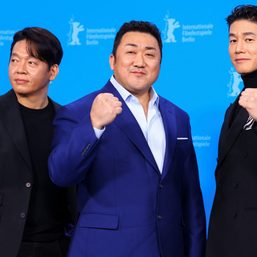SUMMARY
This is AI generated summarization, which may have errors. For context, always refer to the full article.

M is good for nothing. At least, that’s how his Amah describes him. Unwilling to put an effort into his life, he dropped out of university to make a quick buck as a game caster. He doesn’t understand the value of honoring one’s family, let alone keeping up rituals of care. When instructed to scatter petals at the cemetery to honor their ancestors, he does it so poorly that his Amah must step in and do it. When she fumbles and injures herself, he barely notices. When she is wheeled into the hospital, he opts to go home and play on his computer instead. When his mother arrives and tells him the doctors found cancer in Amah’s digestive tract, it’s as if he didn’t hear a thing.
To M, his grandmother isn’t important enough to even be labeled an inconvenience. But when his paternal grandfather dies and leaves the house to his cousin Mui, who served as his primary caretaker, suddenly a plan forms in his mind. He sells his gaming PC, packs his clothes, and moves in with Amah hoping to grow closer to her, close enough that she might favor him, change her will, and give him her home. He is so confident in his plan’s success that he lists the building for sale even before he inherits it.
The premise of writer-director Pat Boonnitipat’s How to Make Millions Before Grandma Dies is nothing new.
Even its trailer reminds us that the film is “inspired by true stories found in every family.” From Akira Kurosawa’s Ikiru (1952) to Lulu Wang’s The Farewell (2019), dramas centered around the family, the terminally ill, and the elderly have been part of Asian cinema since filmmaking could be used to capture our lives.
But the commercial and critical success of How to Make Millions not only in Thailand, but also Indonesia, Malaysia, and Singapore point towards a deeper shared experience that deserves to be interrogated.

It’s easy to attribute the success of How To Make Millions to its timeliness. With constant reminders around violence, grief, political instability, and the rising cost of living, M’s fantasy of suddenly acquiring generational wealth and living a future with minimal toil is the preoccupation of the youth at this historicopolitical juncture. This instant financial boon also animates GDH’s earlier releases, Nattawut Poonpiriya‘s Bad Genius (2017) and Nawapol Thamrongrattanarit’s Fast and Feel Love (2022).
But while Bad Genius and Fast and Feel Love are driven by their characters’ desire to provide a better life for their loved ones, M’s materialism is driven by self-interest. As the narrative progresses, the film becomes less about whether he will acquire a portion of the inheritance and more about what he’ll lose and gain. By caring for his grandmother, can he learn how to care for anyone but himself? Is he even capable of such change?
The film tests this immediately. Unlike the grandmothers in The Farewell or Minari who are held up to a pedestal by their Asian-American grandchildren, heralded as sacrificial characters and defined by their benevolence, Amah, played by Usha Seamkhum, is stubborn, self-sufficient, snippy, and superstitious. To earn her trust, M must adopt her routine: selling congee in the early morning, walking to the bank to make deposits, praying to Guanyin, and sleeping in different beds. By placing himself in her shoes, he grows familiar with her loneliness and the reasons behind it, discovering the dysfunction of their family and the generational wounds that have led to their divided households.
While Bad Genius and Fast and Feel Love energize the mundane through the use of genre, How to Make Millions veers away from the melodrama that characterizes Thai family dramas and instead opts for something more lighthearted.
In each scene, comedy springs forth from the truthfulness of the dilemma. Case in point: When M wakes to find Amah at his bedside praying, his horror dissolves when she opens up about seeing her parents in her nightmares. But when Amah agrees to sleep next to M, Boonnitipat and co-writer Thodsapon Thiptinnakorn undercut the sweetness of the interaction with humor, highlighting the absurdity. It helps that M is played by Thai-Chinese actor Putthipong Assaratanakul (Billkin), whose screen presence remains charming and naive rather than cold and calculating. Even when M can be accused of manipulation, Billkin never plays up M’s insidiousness, instead letting the character’s hesitation, concern, and hurt flash in his eyes and body, even if momentarily.
Boonnitipat directs every frame with a delicate hand using an audiovisual language that rarely calls attention to itself. Cinematographer Boonyanuch Kraithong fills frames with warm light, never too beautiful to erase wrinkles, laugh lines, or acne. The actors sweat and exhaustion can be seen on their faces and bodies.
By making the camera work more static and observational and the edit less rapid-fire, Boonnitipat amplifies the small gestures that are associated with familial intimacy—the proximity of their faces and hands, the slowed and synchronized pace of their walks, the orientation of their bodies in public transport—and emphasizes the realism of the story. Boonnitipat visually closes the emotional distance between M and Amah to the point where there is rarely a frame without the other.
In its latter half, How to Make Millions explores the ugly terrain of familial relationships and the labor that complicates end-of-life care—the logistics after death, the financial burden of caring, the persistence of resentment, and the rarity of resolutions and closure. Most importantly, Boonitipat demonstrates how Amah has been trapped in cycles of failed expectations, cheated out of what was due to her; unsheathing generational wounds that still bleed long after they were dealt.
It doesn’t sanitize how families navigate these complexities nor sand the edges that cause these emotional lacerations, but Boonitipat’s direction never lets the narrative devolve into histrionics either. It takes care to present everyone’s share in each other’s suffering, extends empathy to even the worst in Amah’s children, and presents Amah not only as a victim of circumstance. What else can she do but take the cards she has been dealt and bluff her way through hoping she won’t lose?
This not only with his grandmother’s pain and loneliness but also with the remains of his family awakens M from his conceitedness and entitlement. How to Make Millions Before Grandma Dies has resonated deeply and widely because it forces its characters—and in turn, its audience—to confront the reality that remuneration is impossible. No inheritance can make up for the best times nor salvage the worst. No spontaneous display of affection can suddenly resolve years of estrangement. However necessary and genuine, every effort at closing the gap will always be asymptotic. But what other option is there but to persist? Love in its purest and truest form cannot be paid back. It can only be paid forward. – Rappler.com
***
How to Make Millions Before Grandma Dies is currently in select cinemas nationwide.
Add a comment
How does this make you feel?




There are no comments yet. Add your comment to start the conversation.